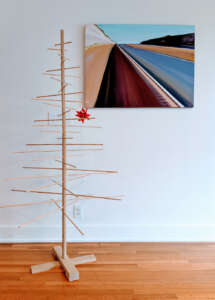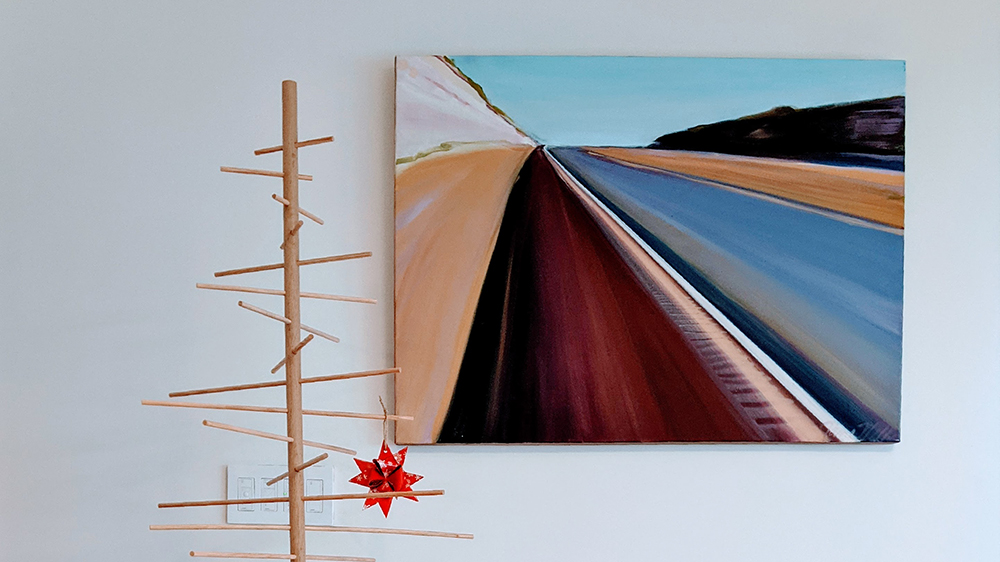Sometimes you come across a term you’ve never heard before but that makes instant, intuitive sense. That’s what happened to me recently when I stumbled on the phrase relationship minimalism.
We’re pretty familiar these days with minimalist movements. It’s a word we apply to art and music and architecture; but mostly now, what we talk about when we talk about minimalism is lifestyle.
The most visible icon of this streamlining trend is Marie Kondo, the Queen of Clean herself, author of The Life-Changing Magic of Tidying Up and currently to be found on Netflix. Marie Kondo is all about looking around at the stuff in your life, in your home, and asking: Does it spark joy? If you hold that pair of jeans close to your heart and feel … nothing, time to banish that sucker from your life. It’s clutter. Life is too short to harbour things that do not spark joy.
And being a classic introvert, relational decluttering – streamlining my social life – has its appeal as well.
Relationship minimalism seems to follow more or less this principle, but applied to people instead of t-shirts. A Guardian article earlier this year told the stories of a number of young people “who are not only eschewing excess material items, but also meaningless relationships and excess ‘emotional clutter.’
“If their friendships are non-satisfactory, they declutter, opting for fewer but more quality relationships. If the city they live in no longer sparks joy, they move. And in a quest to trim down the amount of unnecessary emotional engagement with the world, some don’t even use smartphones or social media.”
At the same time, researchers and health professionals are over and over sounding the alarm about the “loneliness epidemic.” The Talking Loneliness report, a survey of Australians commissioned by Telstra, conducted by YouGov, and released just a few months ago, found that 9 out of 10 Australians experience loneliness, with 44 per cent of us saying we regularly feel lonely.
Twenty-four per cent of Aussies say they don’t feel they have anyone to talk to; 35 per cent rarely or never feel like they are part of a group of friends.
And of course, COVID only made things worse. Twenty-seven per cent of those surveyed reported experiencing loneliness for the first time during the pandemic; unsurprisingly, 38 per cent said they have never felt lonelier than they did in lockdown.

Lars Plougmann/Flickr Painting by Jane Wells
Crises have a way of bringing to the surface things that have been bubbling away underneath for a while. Some who were formerly thrilled with their Marie Kondo-ed apartments reported experiencing regret over throwing out so much stuff once they found themselves confined to their home for months on end. Similarly, I wonder how the experience of lockdown may sway the fortunes of relationship minimalism: has it clarified for us who the core people are in our lives, or convinced us of the importance of a wider, thicker web of relationships?
I personally feel the pull of minimalism, both the material and relational kinds. I haven’t yet been able to bring myself to Marie Kondo my possessions – I’m too sentimental! – but most of us surely have way too much stuff, and I do love bringing order to my space. I can’t concentrate if there’s clutter.
And being a classic introvert, relational decluttering – streamlining my social life – has its appeal as well. Long before COVID, I embraced the motto of the thirty-something introvert: the best plans are cancelled plans. Recently someone who knows me very well bought me a pin that reads: “Sorry I’m late, I didn’t want to come.” I always seem to be craving more alone time, or wondering if I’ve been at an event long enough that it’s not rude to go home yet.
But every now and then, I get the desire of my heart, and my busy schedule dies down a bit, and I love it … for about a day. And then I realise I should be careful what I wish for! Relationships are complicated and tiring; but those pockets of neat decluttered life, when I experience them, are comparatively thin and unsatisfying.
I have reason to think I am not uniquely weird on this front – that others grapple with the same tension. Sally Rooney, the young Irish writer who has been called “the voice of a generation,” in her most recent novel Beautiful World, Where Are You, has a successful young novelist called Alice write to her oldest (and at this point, almost her only) friend Eileen about her own commitment allergy and her dissatisfaction, at the end of her 20s, with the life she finds herself leading:
In public I’m always talking about care ethics and the value of human community, but in my real life I don’t take on the work of caring for anyone except myself. Who in the world relies on me for anything? No one. I can blame myself, and I do, but I also think the failure is general. People our age used to get married and have children and conduct love affairs, and now everyone is still single at thirty and lives with housemates they never see. … Of course if we all stay alone and practise celibacy and carefully police our personal boundaries, many problems will be avoided, but it seems we will also have almost nothing left that makes life worthwhile.
The voice of a generation … yet Rooney’s Alice could be riffing on a warning penned 60 years ago by C. S. Lewis, in his book The Four Loves:
To love at all is to be vulnerable. Love anything and your heart will be wrung and possibly broken. If you want to make sure of keeping it intact you must give it to no one, not even an animal. Wrap it carefully round with hobbies and little luxuries; avoid all entanglements. Lock it up safe in the casket or coffin of your selfishness. But in that casket, safe, dark, motionless, airless, it will change. It will not be broken; it will become unbreakable, impenetrable, irredeemable. To love is to be vulnerable.
Friendship is messy because people are messy. It is a human instinct to want to withdraw from mess and entanglement – from the pain, and awkwardness, and frustration, and scary vulnerability that comes with relationship.
The story of Christmas – of the incarnation – is the story of how God looked at the mess that is his creation, the mess that is us, and instead of withdrawing (decluttering, shedding excess emotional baggage …), he moved towards the mess. He leaned into the mess so far as actually to become human himself! He chose entanglement. He accepted the pain and suffering that come along with it; he accepted vulnerability. What more perfect picture of vulnerability, than a helpless newborn?
It’s the Christmas story, really, that clinches for me the case that optimising my friendships – relationship minimalism, extreme introverting – is not going to make my life smooth and sunny and fulfilling. It compels me to recognise the truth: that it’s out of the mess and entanglement, the being tied down and burdened by others, and being a burden to them, that something beautiful emerges.
I’ve got nothing against the life-changing magic of tidying up. But the gospel, and the experience of learning to live it out in a wonderfully messy church community, demonstrates to me daily the life-changing magic of messy relationships.
This article is adapted from a talk given at a Third Space event in October 2021, “Never more lonely, never more connected.” You can watch the full event online.
Email This Story
Why not send this to a friend?


